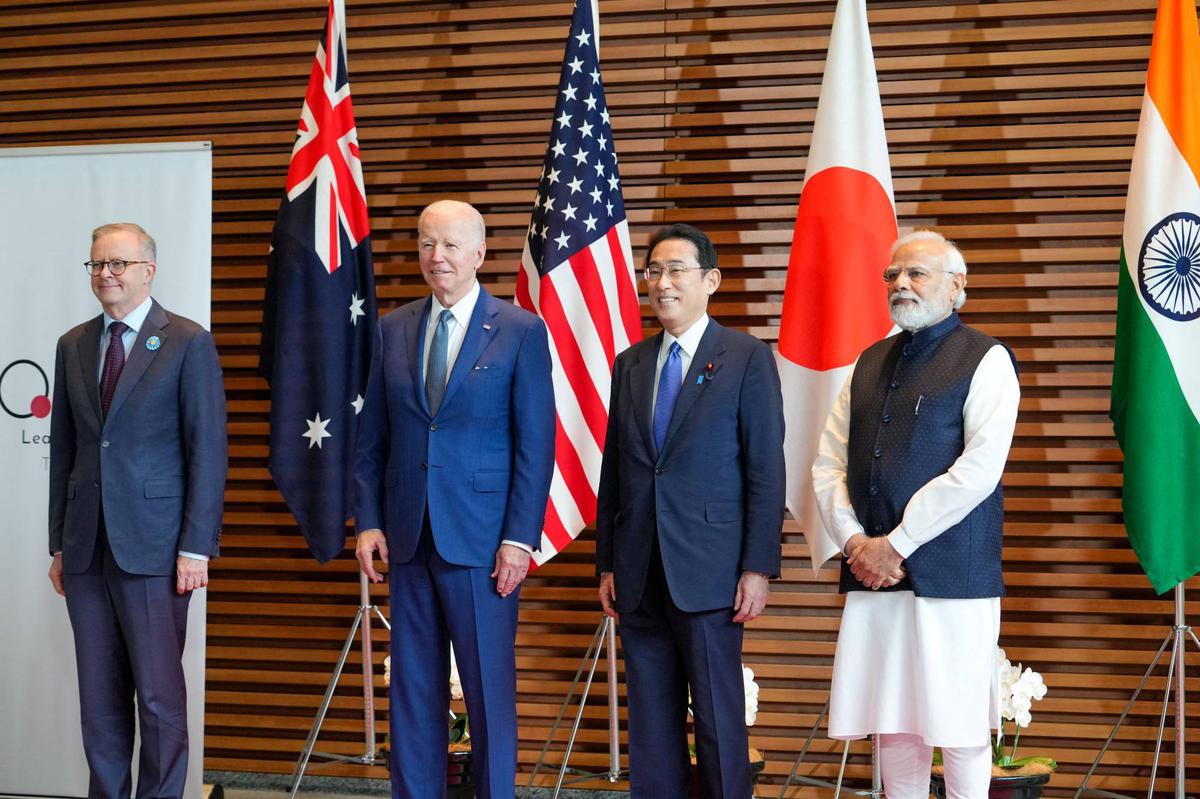India As A Quad-Led Biomanufacturing Hub
Context:
The Quad (Australia, India, Japan, and the United States) established the Critical and Emerging Technology Working Group in March 2021 to promote collaboration, keep track of trends, and scout out business opportunities related to advancements in critical and emerging technologies, including biotechnology.
Background:
- India, Japan, Australia, and the US are the four members of the informal QUAD Group, which holds strategic discussions. The shared goal is to preserve and maintain an open, accessible, and prosperous Indo-Pacific area.
- All of the members participate in semi-regular summits, discussions, intelligence exchanges, and military training exercises to preserve the QUAD Group.
- A coalition of marine democracies is thought to exist.
- Shinzo Abe, a former Japanese prime minister, is credited with coming up with the concept for the QUAD Group in 2007. However, its beginnings may be found during the 2004 Tsunami, when Japan, the US, and Australia joined India in conducting relief and rescue operations for themselves and their neighbouring nations.
- The action coincided with the unprecedented multinational military exercise “Malabar,” which included the US, Singapore, Australia, Japan, and India.
- To promote collaboration and track trends in critical and emerging technologies, including biotechnology, the Quad (Australia, India, Japan, and the United States) created a Critical and Emerging Technology Working Group in March 2021.
- According to predictions, up to 60% of the physical inputs to the global economy might be producible by utilising the technology of biomanufacturing, which uses living systems to manufacture molecules and materials on a commercial scale.
- India’s National Biotechnology Development Strategy aims to make the nation a “Global Biomanufacturing Hub” by 2025, but this would require outside assistance, particularly from Quad partners.
Complementary Strengths of Quad Nations:
- The following complimentary strengths of the Quad nations can be used to establish the biomanufacturing hub:
- The United States has substantial financial resources.
- Advanced biotechnology innovation ecosystems and intellectual property exist in the US, Australia, and Japan.
- India can offer an economical scale and a competent labour force.
India as host:
- India is an excellent contender to host the biomanufacturing hub due to its current infrastructure, knowledge of pharmaceutical manufacturing, and labour availability.
- India has considerable potential for low-cost biomanufacturing, particularly in the production of enzymes, reagents, research materials, and equipment. India is among the top achievers in terms of biomanufacturing research output.
- India has roughly 33% lower manufacturing costs than the US.
- In the next three to five years, India wants to boost its fermentation capacity by a factor of ten, to 10 million litres.
Addressing Supply-Chain Vulnerabilities:
- Vulnerabilities in the supply chain must be addressed because China dominates the biomanufacturing industry.
- To assist India’s efforts to lessen its reliance on China, the planned hub can establish a biomanufacturing fund, connect investors, and promote knowledge transfer.
Workforce development:
- To expand the biomanufacturing industry, India must improve the calibre of its life science specialists.
- Universities near the Quad hub can set up training facilities, and professionals from the Quad countries can conduct the training.
- India’s recent policy changes support scholar exchange programmes and permit the creation of foreign universities, which facilitates the transfer of knowledge and the development of new skills.
Harmonisation and Cross-Quad Collaboration:
- The hub can host all ongoing bilateral government initiatives and set up a research collaboration office.
- The Quad nations’ supply chains can be protected, and international cooperation can be facilitated, by harmonising language, rules, and data-sharing surrounding biomanufacturing.
- Opportunities for cooperation with countries beyond the Quad will be opened up by streamlining activities inside the Quad.
Economic Potential and Global Competition:
- The proposed hub can take advantage of the economic potential of the biomanufacturing sector and fix weaknesses in the global system. Economic Potential and Global Competition.
- The rise of India as a major force in biomanufacturing will help the Quad compete in this crucial field.





